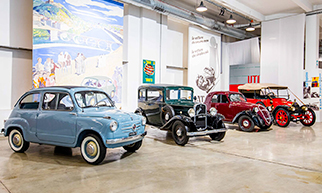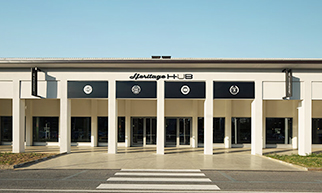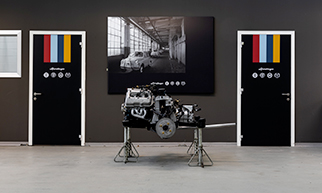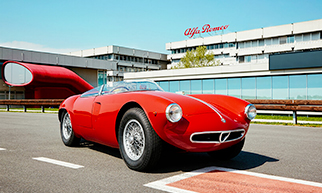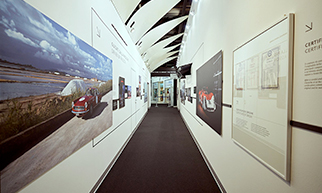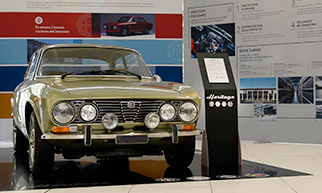A group of students from the six founding countries of the European Union are meeting in Kaiserslautern, Germany to rediscover the meaning of Europe. A 1962 model Fiat Europa, the car that embodied postwar hopes, is going on tour from Maastricht to Turin, with stopovers in participating schools and a mission to defend the unity of the Old Continent.
Europe is not enjoying the best of times: dissatisfaction and loss of confidence in various member countries are undermining the stability at the heart of the Union.
These real concerns prompted Ulrich Schulik, a teacher at the St.-Franziskus-Gymnasium in Kaiserslautern, to come up with an idea to promote re-education on Europe and civic awareness starting in the very first place where good citizens are formed: school.
Throughout 2017, celebrations are being held to mark the 60th anniversary of the signing of the Treaty of Rome, presenting an unmissable opportunity for a symbolic project that combines conventional teaching with an initiative to engage learners in the subject matter.
The symbol chosen was a car, namely a 1962 model Fiat Neckar 1100 Europa, that was discovered by chance and put back on the road with the aim of reuniting the Old Continent from north to south.
The car was originally conceived with the specific aim of fuelling the hopes of a generation exhausted by war and conflict. Expressly named the "Europa", it was designed to convey a message of fraternity and cooperation between countries.
The "Europa Project" consists of two complementary parts, namely a conventional educational component in school, followed by a second "experiential" phase of rediscovery on the road.
For one week from 11 to 18 September, at the St.-Franziskus-Gymnasium school in Kaiserslautern, 14 students from the six founding countries of the European Union will meet their German peers and work together to reflect on what is happening in the states of the Union. This will form the starting point for gaining a basic understanding of the future of Europe.
It is a meeting between fellow European citizens inspired by openness, multiplicity and multilingualism, which are the confederation’s greatest assets.
The second part of the programme begins on 21 September: after the youngsters return to their respective home countries, the four-wheeled "Europa" will set out to visit every school participating in the educational initiative.
The Fiat Neckar, built as an Italo-German joint venture in Heilbronn, will complete a north-south tour travelling from Maastricht to Turin and stopping in the six founding countries of the Union, to present to young people the results of the work achieved in Kaiserslautern.
The stopover in Italy is scheduled to take place at the Centro Storico Fiat (CSF) museum in Turin on 28 September.
The CSF is housed in an Art Nouveau building on Corso Dante that was built as an extension of the company’s original workshops. The collections and archives preserved within it an emblematic location of fundamental historic and cultural value, as well as the ideal setting for connecting young people to their roots and bringing traditional teaching to life, with help from the Fiat Neckar and the FCA Heritage department.
